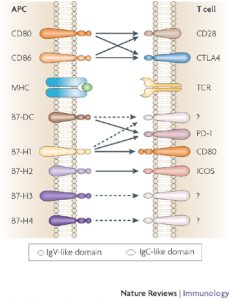Overarching Focus of our Research:
Develop Novel Treg Cell Engineering Strategies For the Treatment of Inflammatory Disease
Research Goal in the Next Five Years:
Decipher regulatory pathways crucial for Treg cell lineage maintenance
Our research focus is directed towards a specific subset of CD4+ T cells namely regulatory T cells (Tregs). The reason we study this cell is because of its ability to induce tolerance and maintain immune homeostasis. Tregs are characterized by the expression of a nuclear factor FoxP3; deficiency of which results in IPEX syndrome in children. Therefore understanding Treg cell biology has real world implications.
Given their importance in immune tolerance, Tregs can be used as a potential immunotherapeutic treatment for autoimmune diseases such as juvenile diabetes, Colitis, RA etc.
In addition to their positive contributions towards immune homeostasis and autoimmunity, Tregs severely affect anti-tumor responses. Hence, understanding their biology will help in tailoring better cancer treatment strategies.
In our laboratory, we are specifically investigating the role of co-receptor [in particular the PD-1/PDL-1 signaling pathway] signaling in maintaining Treg cell lineage. A basic summary of some of the co-receptor expressed by T cells was nicely reviewed in Nature Reviews Immunology

